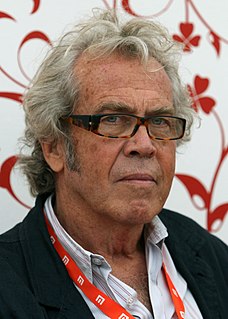A Quote by Joseph Campbell
How does the ordinary person come to the transcendent? For a start, I would say, study poetry. Learn how to read a poem. You need not have the experience to get the message, or at least some indication of the message. It may come gradually. (92)
Related Quotes
Some would rather pull a handcart across the prairie than bring up the subject of faith and religion to their friends and co-workers. They worry about how they might be perceived or how it might harm their relationship. It doesn't need to be that way because we have a glad message to share, and we have a message of joy.
And that is that they went about systematically understanding how to disrupt and change a person's entire processes. And these Taliban - I'm not trying to say the Republican Party is the Taliban - no, that's not what we're saying. I'm saying an example of how you go about [sic] is to change a person from their messaging to their operations to their frontline message. And we need to understand that insurgency may be required when the other side, the House leadership, does not follow the same commands, which we entered the game with.
A successful poem says what a poet wants to say, and more, with particular finality. The remarks he makes about his poems are incidental when the poem is good, or embarrassing or absurd when it is bad and he is not permitted to say how the good poem is good, and may never know how the bad poem is bad. It is better to write about other people's poetry.
For me, poetry has a strong link to my filmmaking. My films learn from my poetry. In poetry, you're free. You start in the corner and you don't know where it leads you. I have no message, I have nothing I want to tell, I just start and I see where it leads, and it's a big surprise and relief if it's good. That's the ideal state for filmmaking.
There is all this stuff about how sensitive poets are and how in touch with feelings, etc. they are, but really all we care about is language. At least in the initial stages of the process of writing the poem, though later other things start to come in, and a really good poem usually needs something more than just an interest in the material of language to mean anything to a reader.
We think of communication as words. But a screaming child is trying to say something. A tantrum carries a message. Hitting is communication. Sleep patterns carry a message. Even the sulky belligerence of a teen is an attempt to convey a message. Everything the child does says something to the person who is willing to take the time to listen carefully.
So when we come across somebody who does understand this and makes an effort to try and explain it to us, some people freak out and turn that person into either an object of worship or, some people freak out and want to kill that person. I think it's because they know what's true but they don't want to know, they don't want to face up to what that actually means. So they're going to kill the messenger and hope that by doing so they'll destroy the message so they can go back to living their ordinary life again.


































